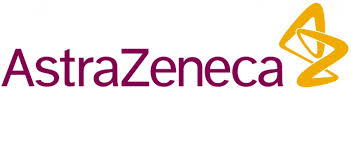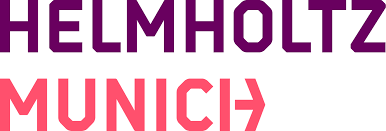
Nationality: Swedish
Research topic: One Chemistry: Robust learning of modular AI systems for the molecular generation, chemical reactions, and synthesis
Project description: The aim is to create a modular and unified system for deep learning of molecular tasks, and the project’s focus is to explore and deliver robust learning and normalization techniques that enable end- to-end training of the modular AI systems. The models created from multiple self-normalizing modules will be tested and evaluated for their application in drug discovery by collaboration with other projects within the AIDD training network focusing on generative models as well as reaction and synthesis prediction. Robust self-normalizing techniques will be developed and benchmarked in collaboration with architectures developed in collaboration with other ESRs within the AIDD training network.
Personal Introduction: Early-stage researcher of the Advanced machine learning for Innovative Drug Discovery (AIDD) consortium, focusing on using normalization techniques to achieve robust learning when combining multiple models.
With a background in engineering mathematics from Chalmers University of Technology, I have a great passion for data science and AI. In particular, I enjoy applying my analytical skills to solve complex problems in creative ways. My experience in machine learning spans a wide range of methods which I got to apply to real-world problems as a research assistant at the Center for Applied Autonomous Sensor Systems (AASS). Initially, my interest in drug discovery comes from my Master’s thesis in the Molecular AI group at AstraZeneca, where I got to model the chemical reaction space as a knowledge graph with the goal to predict novel reactions. The high importance and relevance of the field lead me to further seek out this doctoral position in AIDD.
During this project, I hope to improve the methodology for robust learning in drug discovery applications and make valuable scientific progress through cross-disciplinary collaborations with my colleagues in both academia and industry. One of the impacts of more robust machine learning is the reliable and transferable properties of trained models. As such, my research will help reduce computational cost and save resources for the pharmaceutical companies.
Additionally, I will collaborate with ESR1 to collect the models from the rest of the consortium into one coherent model, referred to as One Chemistry. The aim will be to combine the reasoning of the different models in order to achieve improved predictive ability across tasks and applications in the combined model. In the end users should be able to predict a variety of tasks ranging from chemical synthesis to biological binding affinity prediction using the One Chemistry model, the final output of the AIDD consortium.
Contact: GitHub LinkedIn Twitter GoogleScholar ORCID
Presentations at conferences and meetings:
- Svensson, E., Hoedt, P.-J., Hochreiter, S., Klambauer, G. Robust task-specific adaption of models for drug-target interaction prediction. In NeurIPS2022 AI4Science Workshop. November 28, 2022.
- Svensson, E., Hoedt, P.-J., Hochreiter, S., Klambauer, G. Task-conditioned modeling of drug-target interactions. In ELLIS Machine Learning for Molecules Discovery Workshop. November 28, 2022.
- Svensson, E., Hoedt, P.-J., Hochreiter, S., Klambauer, G. Task-conditioned modeling of drug-target interactions. In NeurIPS2022 Women in Machine Learning Workshop. November 28, 2022.
- Svensson, E., Hoedt, P.-J., Hochreiter, S., Klambauer, G. Robust task-specific adaption of drug-target interaction models. In ICML2022 Workshop on Women in Machine Learning. July 18th, 2022.
- Svensson, E., Hartog, P. AIDD Codebase: a Framework for Model Integration, Collaboration and Sharing (June 22, 2022)
- Svensson, E. gave a talk "HyperPCM: Robust Task-Conditioned Modeling of Drug-Target Interactions" for the M2D2 talk series from Valence Labs at Mila (April 2nd, 2024). Watch the talk here!
- Friesacher, H.R., Svensson, E., Arany, A., Mervin, L., Engkvist, O. Towards reliable uncertainty estimates for drug discovery: A large-scale temporal study of probability calibration. Poster in AI for Science Workshop at ICML 2024.
- Svensson, E., Friesacher, R., Winiwarter, S., Mervin, L., Arany, A., Engkvist, O. Enhancing uncertainty quantification in drug discovery with censored regression labels. Talk at the AI in Drug Discovery Workshop, ICANN 2024.
Articles and pre-prints:
- Svensson, E., Hoedt, P.-J., Hochreiter, S., Klambauer, G. Robust task-specific adaption of models for drug-target interaction prediction. In NeurIPS2023 AI4Science Workshop. November 28, 2022.
- Svensson, E., Hoedt, P.-J., Hochreiter, S., Klambauer, G. Task-conditioned modeling of drug-target interactions. In ELLIS Machine Learning for Molecules Discovery Workshop. November 28, 2022.
- Svensson, E., Hoedt, P.-J., Hochreiter, S., Klambauer, G. HyperPCM: Robust Task-Conditioned Modeling of Drug-Target Interactions. J. Chem. Inf. Model. 2024. https://doi.org/10.1021/acs.jcim.3c01417
- Rydholm, E., Bastys, T., Svensson, E., Kannas, C., Engkvist, O., and Kogej, T. Expanding the chemical space using a chemical reaction knowledge graph. Digital Discovery. 2024. https://doi.org/10.1039/D3DD00230F
- Hartog, P., Svensson, E., Mervin, L., Genheden, S., Engkvist, O., Tetko, I.V. Registries in Machine Learning-Based Drug Discovery: A Shortcut to Code Reuse. In: Clevert, DA., Wand, M., Malinovská, K., Schmidhuber, J., Tetko, I.V. (eds) AI in Drug Discovery. ICANN 2024. Lecture Notes in Computer Science, vol 14894. Springer, Cham. 2024.
- Svensson, E., Friesacher, H.R., Arany, A., Mervin, L., Engkvist, O. Temporal Evaluation of Uncertainty Quantification Under Distribution Shift. In: Clevert, DA., Wand, M., Malinovská, K., Schmidhuber, J., Tetko, I.V. (eds) AI in Drug Discovery. ICANN 2024. Lecture Notes in Computer Science, vol 14894. Springer, Cham. 2025. https://doi.org/10.1007/978-3-031-72381-0_11
- Svensson, E., Friesacher, R., Winiwarter, S., Mervin, L., Arany, A., Engkvist, O. Enhancing uncertainty quantification in drug discovery with censored regression labels. Artificial Intelligence in the Life Sciences. 2025. https://doi.org/10.1016/j.ailsci.2025.100128
- Friesacher, H.R., Svensson, E., Winiwarter, S., Mervin, L., Arany, A., Engkvist, O. Temportal Distribution Shift in Real-World Pharmaceutical Data: Implications for Uncertainty Quantification in QSAR Models. arXiv. 2025. https://doi.org/10.48550/arXiv.2502.03982
Organizations:
Johannes Kepler Universität Linz, Austria, September 1st, 2021 - February 28, 2023
AstraZeneca AB, Sweden, March 1st , 2023 - August 31th, 2024


Secondments:
Helmholtz Munich, Germany, May 23rd - June 24th, 2022

